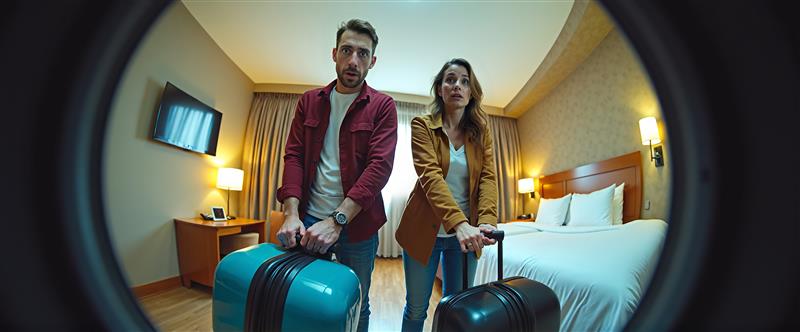Covert recordings have been used in legal cases for many years – from personal injury to divorce proceedings and everything in between. However, a recent increase in usage within family law cases has prompted the courts to introduce new guidance around what is and isn’t acceptable.
Often, covert recordings breach the privacy and protection of those involved. This is not only potentially damaging for any children affected, but could also be considered abuse, harassment, or controlling behaviour – bringing it into the sphere of criminal activity. As the Family Justice Council advises extreme caution over the use of covert recordings in family proceedings, we’re here to provide a holistic view of this age-old feature of litigation.
In this blog you’ll understand the history of covert recordings, the dangers of modern uses, and key advice to protect the interests of everyone involved.
A history of covert recordings
Surveillance in law isn’t new – it has been used in family proceedings, personal injury cases, and more for many years. But the evolution of handheld and hidden devices has now made it easier than ever for the average person to record covertly.
For example, if you were to take a divorce proceeding case in the pre-1960s, you would typically find that spouses would pay someone to trail their partner with a camera, taking photographic stills and notes about where they were and who they were with in an attempt to prove an affair. Fast forward to the turn of the millennium, and you’d find handheld video cameras adapted and disguised within suitcases, briefcases, or even pockets as a form of spyware for commercial cases.
Various covert recording tactics have also been used for personal injury cases by defendants in an attempt to disprove the severity or existence of a claimant’s injury. Real examples include footage of claimants participating in banger racing or high-speed driving after claiming that they can no longer drive or drive at speed.
So, what’s changed? Despite the legitimacy of these historic covert recording uses, they are rarely seen today due to the cost of execution and the ease of alternatives, such as viewing online material instead. For instance, those making holiday sickness claims are often disproved when the defendant finds social media images of them appearing to be absolutely fine on said holiday, undermining their credibility. However, the use of covertly recorded footage is rising once again – especially in family proceedings. Here’s what you need to know.
Covert recordings today – right or wrong?
In the conventional sense, a covert recording is where somebody films and/or records you without your knowledge. This has recently become more common in our private lives and a more prevalent issue within the courts due to the evolution of high-quality handheld devices such as mobile phones, dashcams, and doorbell cameras.
In a family setting, covert recordings in a private space are often used with the underlying motive to prove someone’s behaviour as unacceptable or abusive. This sometimes comes in the form of fitted bugs around the house. However, without permission to film, the recording can be classed as abusive, controlling, and unlawful – incriminating the recorder in the process. This can also be highly damaging and potentially traumatic for any children involved.
The rules are different for public spaces; somebody can take a covert picture or video of someone else to bring litigation against them, and that’s accepted as a valid part of evidence-gathering. However, there is a fine line between what is classed as private and public, and an even finer line between what classes as harassment or abuse. This is why the courts have stepped in with updated guidance, raising extreme caution over the use of covert recordings in family proceedings.

Our advice…
On being filmed covertly
We routinely advise our clients, particularly on higher value claims, about the possibility of images, videos, or voice recordings being used against them. In some cases, this can come from a covert recording in public, but a likelier scenario today might involve CCTV or dashcam footage. This counts as legitimate evidence showing a real-time event and is frequently used for proof in courts. Anything recorded in a private home or property is not legitimate.
For family matters
We appreciate these cases are highly emotive, particularly when there are children involved. Where parents are battling over custody, child handovers are often filmed for protection or to prove ill-behaviour in court. However, we must urge caution of the emotional impact this can have on the child. Children are highly vulnerable and perceptive, and to protect their welfare, we would strongly advise against any filming that involves them.
As an alternative to covert recording for contact scenarios, you could consider having a trusted third party with you that the child is familiar with. The third party could be a valid witness who can testify in court to any ill-behaviour experienced, instead of a potentially abusive, damaging, and unlawful recording.
For hostile circumstances, the use of a contact centre for handovers is a far more effective and lawful method of protection than a covert recording. Ultimately, it’s about avoiding any situation that could result in any emotional trauma for the child. Think about them before risking hostile handovers for evidence.
In court
You’re not allowed to record in a courtroom under any circumstances. Although some courts may allow professional recording for certain sentencing hearings, generally speaking, court proceedings are strictly private. It is classed as a contempt of court – and a criminal matter – if this is breached. In addition, your lawyer, as an officer of the court, would no longer be able to represent you.
All scenarios
If you think that you have been filmed, or if you think that there is visual or audio evidence out there, speak to your solicitor. This will help prepare action to protect and defend you against any permissible or non-permissible footage.
You should also speak to your solicitor if you’re considering filming someone. There are guidelines, strict laws, and limits to what you can and can’t do. In this scenario, your solicitor will ask you where and in what circumstances you want to record, along with your motives for doing so.
Choose justice, choose Optimal Solicitors
At Optimal, our personal injury and family law solicitors are here to protect your interests and any children involved through every lawful means necessary. We’ll provide expert advice in line with the latest legal frameworks – always geared towards helping you achieve justice.
If you’re considering the use of a covert recording or are concerned one has been used against you, we urge you to contact us for legal assistance at your earliest opportunity. We’ll treat your case with empathy and commitment as we work towards helping you achieve the optimal outcome.
To find out more about how we can help, please don’t hesitate to contact us today.



